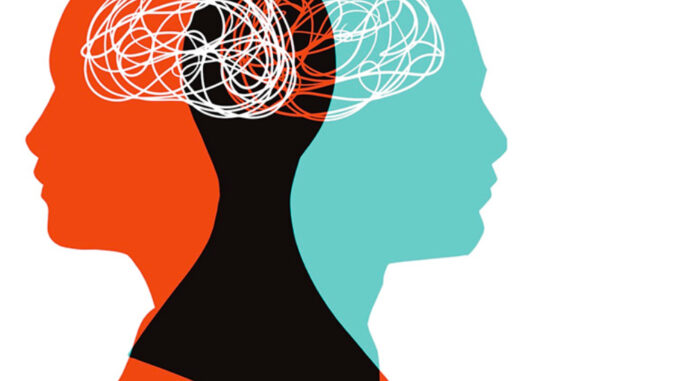
By Avi Wizwer
New York City has many great things, but there is one thing that New Yorkers aren’t talking about is the toll on mental health that stems from living here. New Yorkers are currently in the midst of an epidemic of poor mental health attributed to the city’s economic inequality, poor air quality, and noise pollution. With this being one of the world’s most famous and popular cities, we must take our mental health more seriously, and it must come up more often in conversations with others and professionals.
It is becoming increasingly challenging to maintain good mental health in New York City, and it has become increasingly complex with the rise of depression. “Depression is a leading cause of disability in NYC and nationwide. In NYC, in 2015, depression was the second leading cause of disability-adjusted life years (DAILYs) and the leading cause of years lived with disability,” according to the National Library of Medicine.
New Yorkers are still feeling the after-effects of the pandemic to the point where poor mental health rates have gone up, and depression and anxiety haven’t improved since May 2021, according to the NY Health Foundation. I believe the pandemic only amplified these effects and the decline of mental health for the majority of New Yorkers.
Depending on where you live, air pollution in New York City can significantly affect your mental health. The pollutants in the air, and constantly breathing in these toxic chemicals, can influence and alter your brain.
According to Technology Networks, “Elevated levels of pollutants are considered risk factors for anxiety, depression, schizophrenia, substance abuse disorders, and dementia. They found that when levels of two pollutants, fine particulate matter and nitrogen dioxide, were elevated in D-rated neighborhoods, mental disorder-related ER visits increased 1.04% and 0.44%, respectively, two days later.”
Another factor that should be considered is noise pollution. Noise pollution consists of unwanted or disturbing sounds that can negatively affect human health and well-being. We’re constantly exposed to auditory sensory overload with the sounds of construction, sirens, and car horns, which can have a long-term impact. Our brains use and expend energy trying to fight off the noise.
Charlie Mydlarz, a research associate professor at New York University, helps research noise pollution, which he calls the “slow killer.” One of his studies involved placing microphones across New York City.
“Noise isn’t dropping people on the streets, but it’s slowly affecting people,” he stated in a New York Times article. “If you’re having to adjust to a high level of noise when you move to a loud part of the city, your brain is using energy to effectively ignore that high level of noise,”
Additionally, according to the New York Times article, Arline Bronzaft, an environmental psychologist and noise pollution expert who has studied noise in New York City for years, has claimed that loud vehicle noises can harm our physical well-being and mental health.
Originally from a small town called Ossining in Westchester County, I moved to New York City at the age 20. I was exposed to a different environment with a slower pace of life, less environmental noise, less infrastructure, and more nature.
Over the past year, I noticed and realized that I wasn’t as anxious and experienced fewer feelings of depression than in my previous environment. Upon my arrival of moving to Brooklyn and going to school at Brooklyn College, I’ve had to double down on the things that keep me grounded and, for some time, that didn’t provide any feeling of being grounded.
I have concluded that the environment will not create a sense of peace or groundedness. Instead, it is the self-awareness and willingness to constantly work on your mental health to improve or subside the adverse effects of your surroundings that will.
New York City is an enjoyable city, and if you’re feeling stressed, depressed, or anxious while living here, there are a couple of things that you can do today to increase your mental health. Engaging in daily exercise, mindful practices such as meditation, and journaling can significantly benefit a calm mind. With anything, it takes consistency and intention to work on yourself and keep yourself intact. These practices can make navigating your mental health easier in such a fast-paced city.
